Envelop your garden in an aura of mystery, power, and elegance with the addition of striking black flowers and plants. These dark beauties create a mesmerizing contrast with other colors and textures, transforming your garden into a captivating haven. Are you ready to delve into the world of black flowers and plants and unveil their secrets?
Short Summary
Unlock the mysteries of the dark with captivating black flowers and plants, from Queen of Night Tulips to Ebony Beauty Coleus.
Create an eye-catching garden by combining black plants and flowers with lighter hues for a dramatic contrast.
Discover the mysterious significance behind these alluring blooms – representing mourning, power & passion!
Captivating Black Flowers
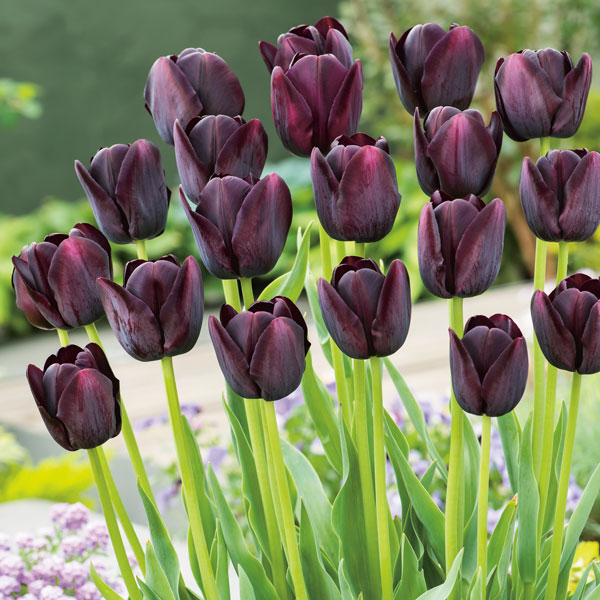
Imagine your garden imbued with the dark allure of bewitching black flowers and dark purple flowers, each bloom a mysterious masterpiece. From the deep maroon of the Queen of Night Tulip to the velvety embrace of the Black Velvet Petunia, these flowers possess an enigmatic charm that can elevate your garden’s aesthetic to new heights.
Let us now explore the captivating world of black flowers, including the mysterious black bat flower, the elegant black beauty, and the enchanting black magic rose, uncovering their hidden depths.
Queen of Night Tulip
Behold the Queen of Night Tulip, a deep maroon flower that appears almost black, exuding strength and might. When paired with lighter-colored tulips, its dark shade creates a striking contrast that commands attention. This majestic bloom heralds the beauty of spring, with its mysterious hue adding a touch of intrigue.
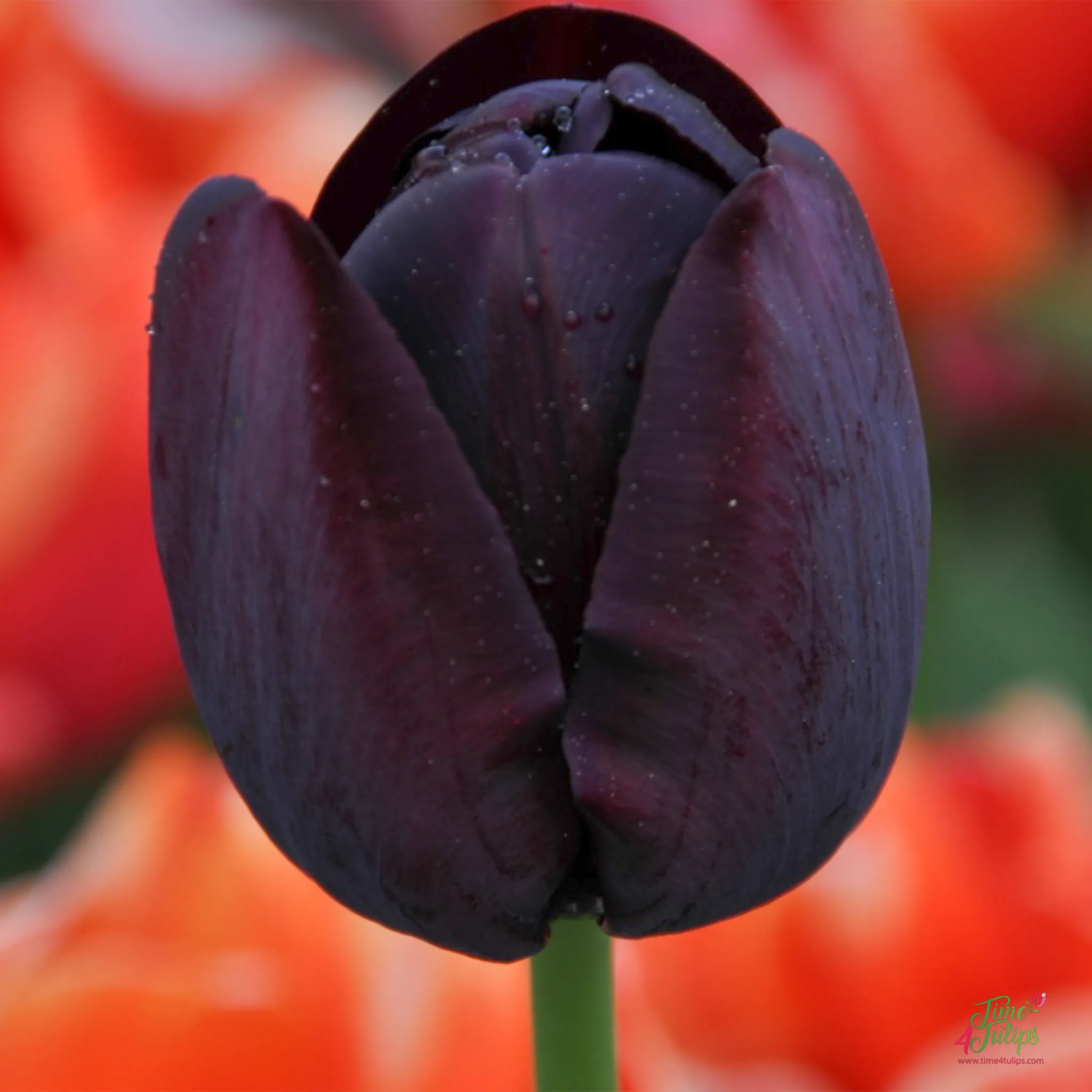
The Queen of Night Tulip:
Thrives in full sun
Requires soil with regularity and adequate drainage to flourish
Hardy in zones 3-8
Blooms in late spring, showcasing its dark red, nearly black hue
Can be planted alone or partnered with ‘Sooty’ Sweet William in hanging baskets
Is a captivating addition to any garden
Black Velvet Petunia
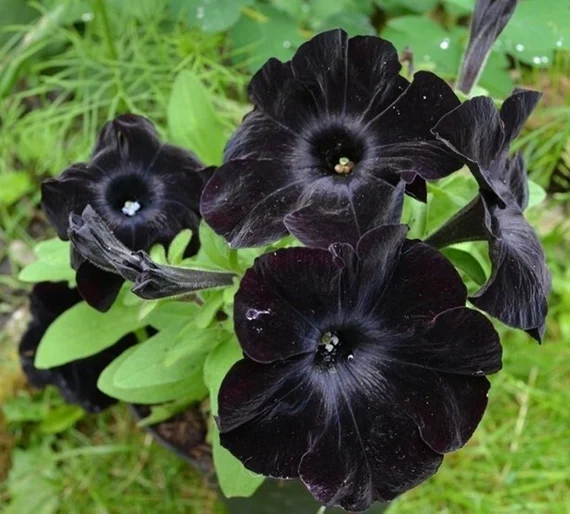
Enter the realm of the Black Velvet Petunia, a dark and mysterious hybrid developed in 2010. Its velvety black trumpet-shaped flowers sit atop light green foliage, beckoning butterflies and hummingbirds to partake in their enchanting allure.
When paired with obsidian coral bells, the Black Velvet Petunia creates a stunning garden display, exuding modern minimalism when planted in droves, or making a striking impact when surrounded by other colored flowers.
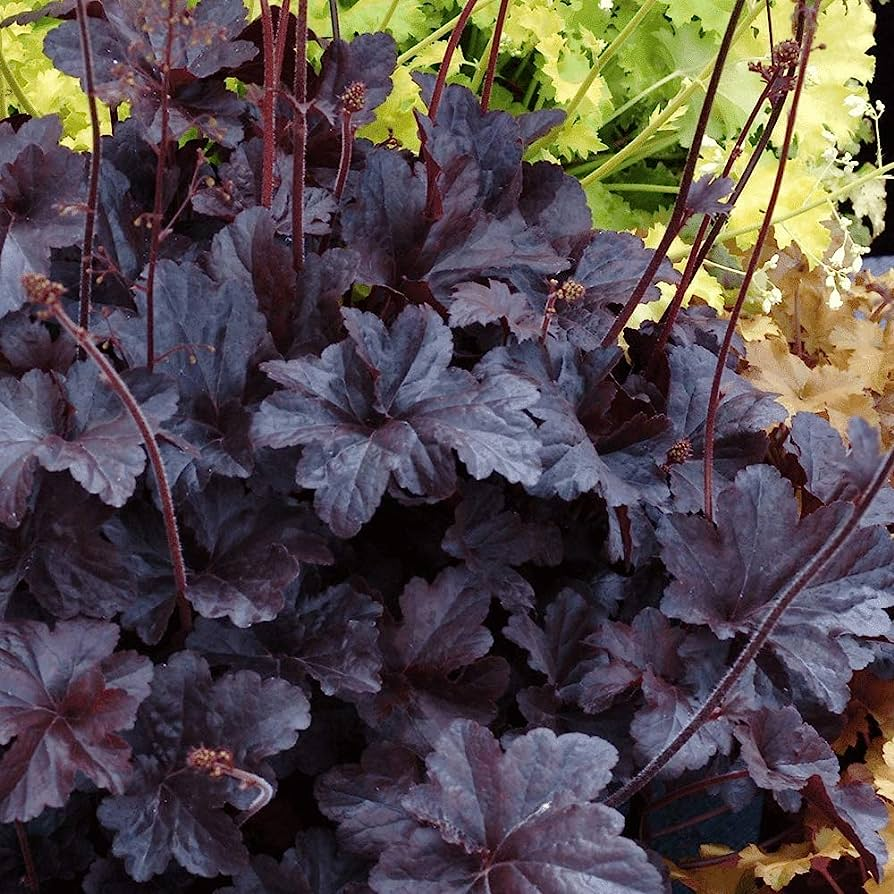
Fragile yet alluring, the Black Velvet Petunia requires extra protection from the elements. It thrives in USDA zones 9-11 and demands a vigilant eye to guard against chill, downpours, and gusts of wind. To ensure a successful bloom, provide these delicate flowers with the care and attention they deserve.
Dark Delight Iris
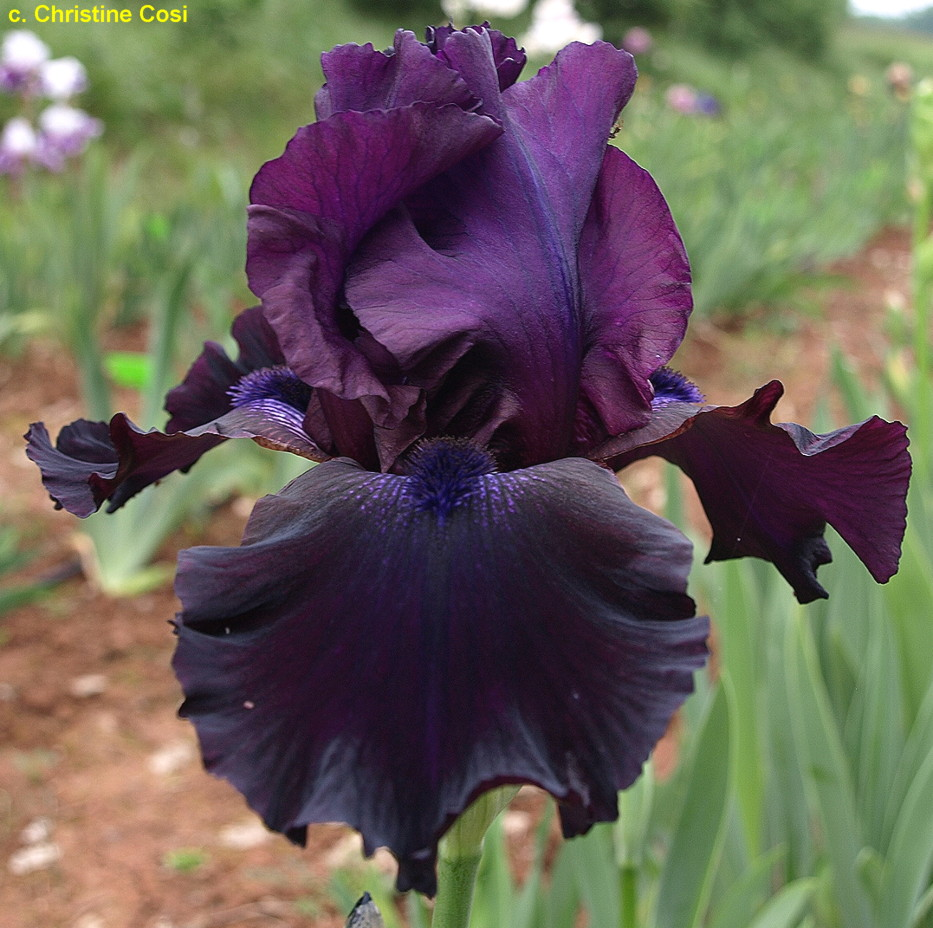
The Dark Delight Iris emerges from the shadows, its bewitching black flower adorned with a sweet fragrance. This elegant bloom is ideal for infusing drama and sophistication into your garden borders or containers. Its mysterious purple to black hue captures the essence of mystery and allure.
Hardy in USDA zones 2-9, the Dark Delight Iris flourishes in full sun and well-drained soil rich in nutrients. Its sublime height of 37 inches and sweet aroma make it a captivating addition to any garden, carrying immense cultural significance and romantic implications.
Midnight Marvel Hollyhock
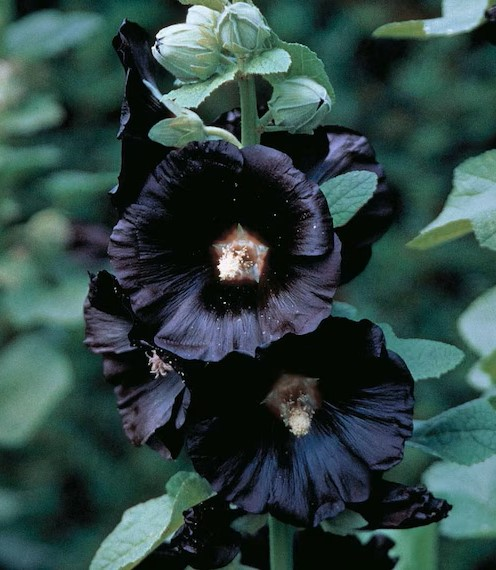
Rising from the depths of darkness, the Midnight Marvel Hollyhock stands tall and robust, its deep purple-black flowers attracting pollinators and commanding attention. This hardy perennial plant can reach heights of between five and eight feet, making a bold statement in any garden.
Ideal for just about any garden, the Midnight Marvel Hollyhock thrives in full sun and well-drained, moist soil. Its features include:
Breathtaking beauty that adorns the landscape in mid to late summer
Dark foliage that provides a stunning backdrop for other colorful blooms
Ability to create an awe-inspiring architectural centerpiece when positioned at the rear of your garden or border.
Fascinating Black Plants
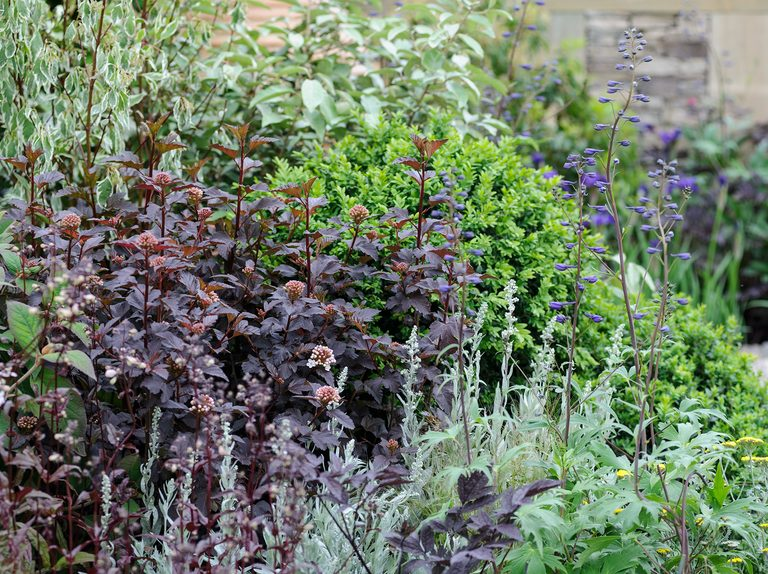
Venture further into the world of darkness and discover the fascinating realm of black plants. These enigmatic additions to your garden can create depth and contrast, enhancing the captivating allure of your black flowers.
Let us delve deeper and unveil the secrets of these fascinating black plants.
Ebony Beauty Coleus
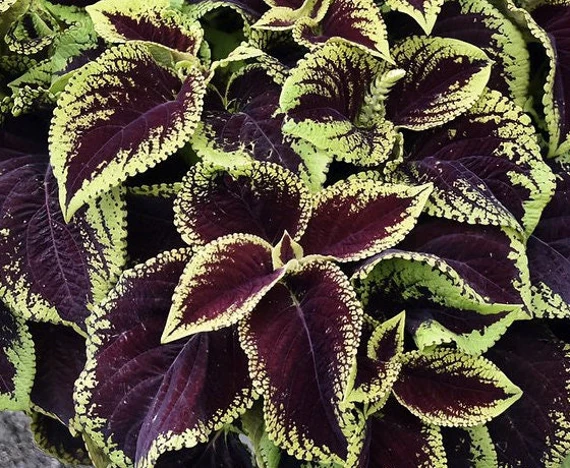
The Ebony Beauty Coleus emerges from the shadows, its deep burgundy leaves with ruffled edges reaching up to two feet tall. Associated with mystery and darkness, this plant adds a dramatic touch to your garden beds or containers, contrasting beautifully with the bright green foliage of surrounding plants.
This plant thrives in USDA zones 10-11 and prefers well-drained soil with added organic matter to promote healthy growth. Bring out the full potential of this mysterious beauty by providing it with the care and attention it deserves.
Black Lace Elderberry
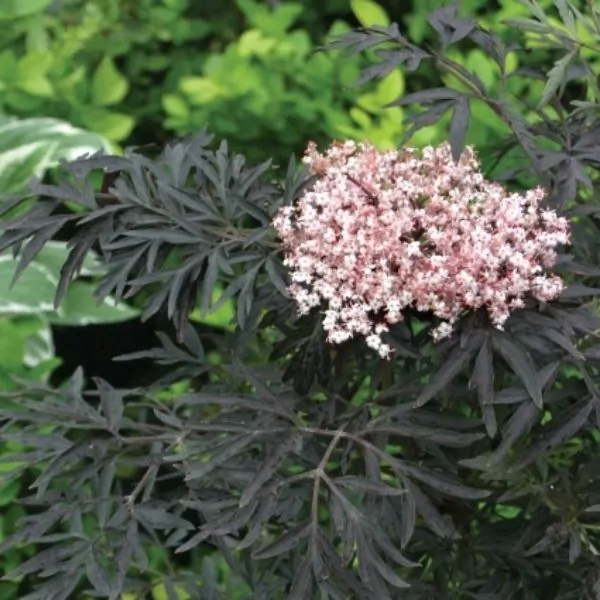
Behold the Black Lace Elderberry, a deciduous shrub with dark foliage, pink flowers, and edible purple-black berries. This plant is perfect for adding contrast and interest to your garden, drawing the eye and evoking a sense of mystery and allure.
Hardy in USDA zones 4-7, the Black Lace Elderberry requires full sun and well-drained, moist soil that is rich in nutrients. Embrace the enigmatic charm of this captivating plant and watch as it transforms your garden into a haven of mystery and intrigue.
Dark Diamond Sedum
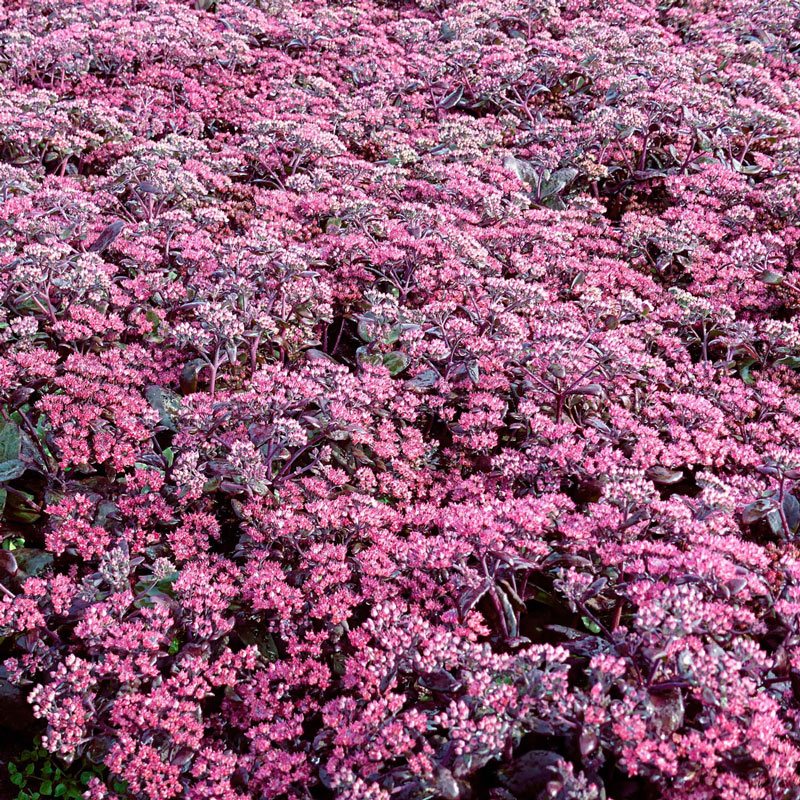
The Dark Diamond Sedum reveals itself, a low-growing succulent with dark purple-black leaves and bright pink flowers. This plant is ideal for rock gardens, borders, and ground cover, its striking appearance adding depth and interest to any garden.
Thriving in USDA zones 3-9, the Dark Diamond Sedum requires full sun and well-drained soil to reach its full potential. This resilient plant can withstand drought and even some shade, making it a versatile and captivating addition to your garden.
Black Mondo Grass
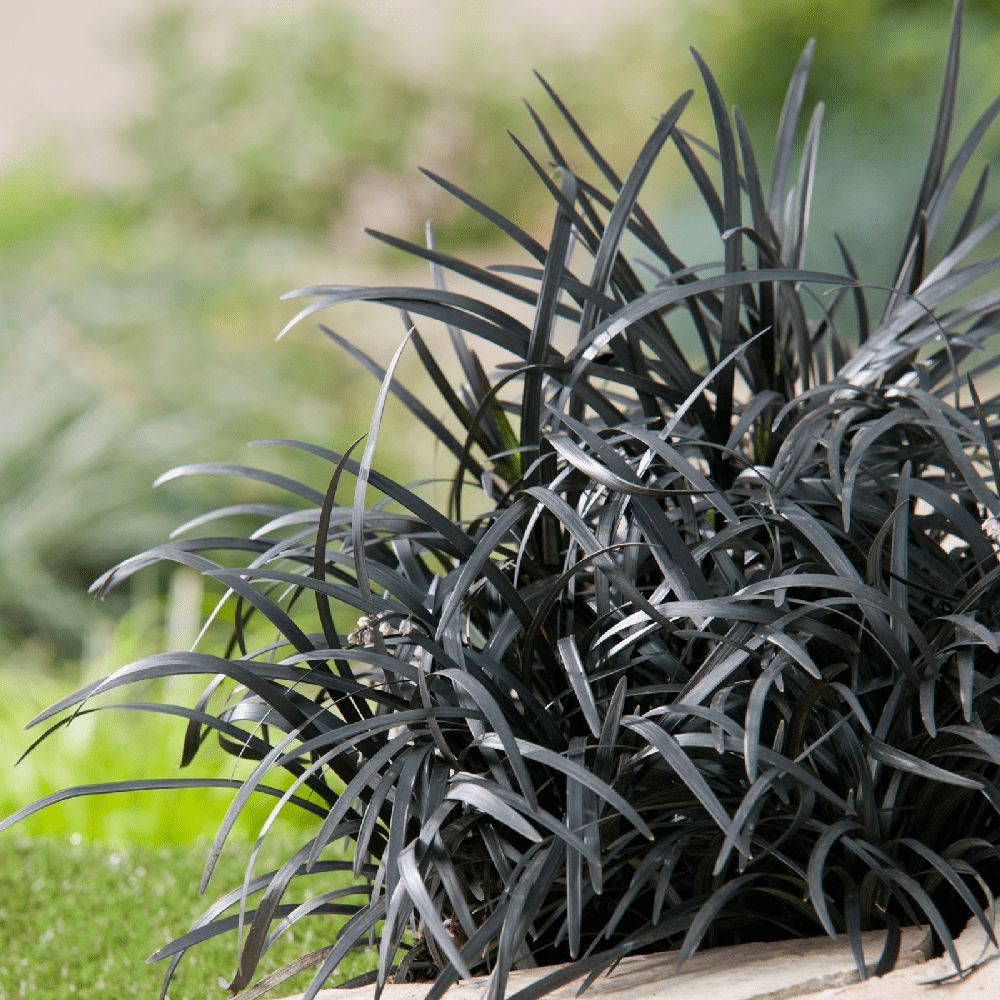
The Black Mondo Grass emerges from the darkness, its jet-black grass-like leaves contrasting with delicate white flowers and glossy purple berries. This hardy perennial plant is perfect for borders, ground cover, and underplanting shrubs, its striking appearance creating a dramatic effect in any garden.
Hardy in zones 6-11, the Black Mondo grass requires full to partial sun and well-drained soil to thrive. Incorporate this intriguing plant into your garden design and witness the mesmerizing contrast it creates with other plants and colors.
Tips for Growing and Caring for Black Flowers and Plants
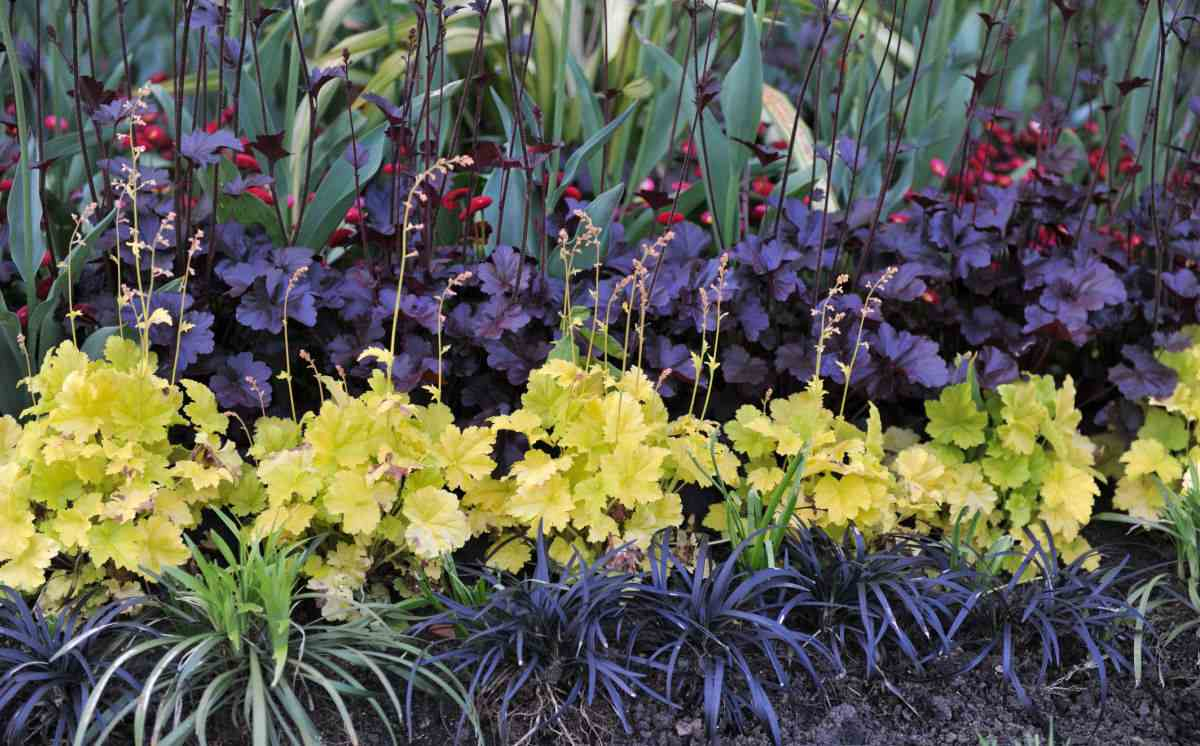
To ensure the health and vibrancy of your black flowers and plants, proper care and attention are essential. From ideal soil conditions to light and water requirements, nurturing these dark beauties requires a thorough understanding of their unique needs.
Let us now explore the secrets to growing and caring for black flowers and plants.
Ideal Soil Conditions
The ideal soil conditions for black flowers and plants depend on the species, but most prefer well-drained soil with added organic matter to promote healthy growth. Loamy soil, a blend of sand, silt, and clay, is often the preferred choice, as it provides a nutrient-rich, moist, and well-draining environment for these plants to thrive.
Whether you’re growing the mysterious Queen of Night Tulip or the captivating Black Velvet Petunia, it’s essential to provide the right soil conditions for each plant. Amend your soil as needed and monitor its moisture levels to ensure your black flowers and plants flourish in your garden.
Light and Water Needs
Light and water needs differ among black flowers and plants, but most require full sun to partial shade and regular watering to maintain their dark color and overall health. Be sure to provide at least 6 hours of full sun each day and no more than 4 hours of shade to ensure optimal growth and vibrancy.
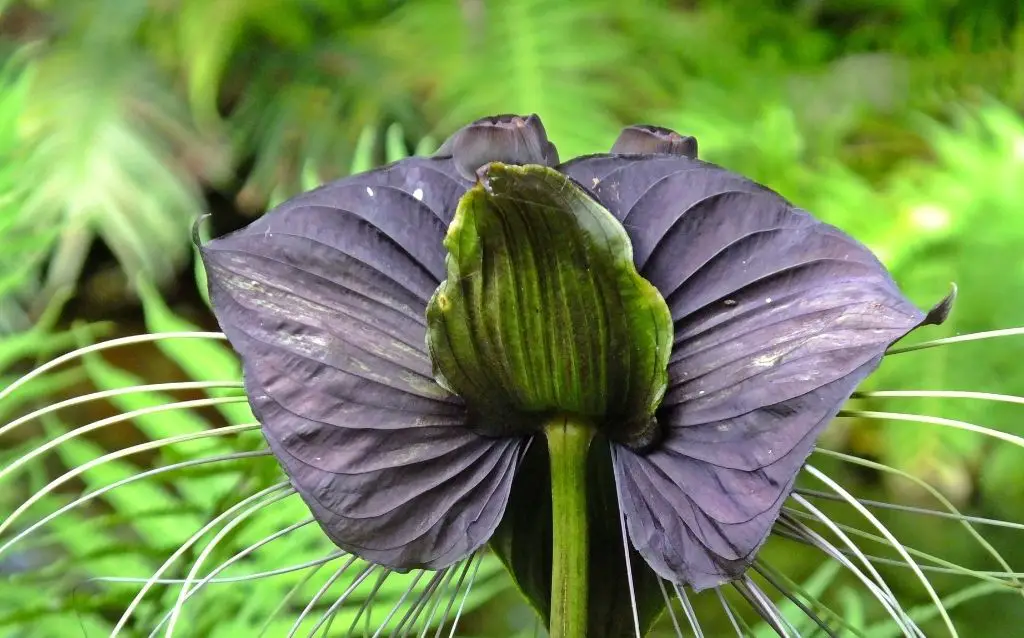
Proper watering is crucial for the health of your black flowers and plants. Here are some tips to keep in mind:
Some black flowers, like the Dark Delight Iris, may require more water during the budding to flowering stages.
Others, like the Black Velvet Petunia, may need extra protection from the elements.
Monitor your plants’ water needs and adjust accordingly to keep them in peak condition.
Pruning and Maintenance
Pruning and maintenance are essential for keeping black flowers and plants looking their best. Here are some tips for maintaining their health and beauty.
Deadhead spent blooms
Trim back overgrown foliage
Monitor for pests and diseases Develop a regular pruning and maintenance routine, snipping away spent flowers and stems, cutting back woody salvia, and pruning foliage down to a few inches from the ground.
Some perennials may require pruning in the fall to prevent winter damage. With proper care, your black flowers and plants will continue to captivate and enchant for years to come.
Symbolism and Significance of Black Flowers
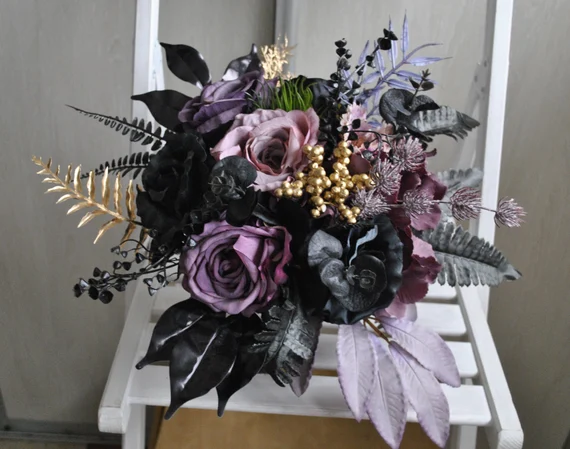
Black flowers hold various symbolism and significance in different cultures and contexts, making them a fascinating addition to any garden. Some of the meanings associated with black flowers include:
Mystery and intrigue
Power and strength
Elegance and sophistication
Rebirth and renewal
These dark blooms have captivated the hearts and minds of those who behold them.
Let us now explore the symbolism and significance of these enigmatic flowers.
Cultural Significance
In some cultures, black flowers are seen as a symbol of mourning, often used at funerals to express sorrow and grief. Yet in other cultures, they can signify rejuvenation and a fresh start, representing the cycle of life and death.

Their cultural significance varies, but they often symbolize mystery, power, and elegance, making them a unique and intriguing choice for your garden.
Whether used to commemorate a loved one or to celebrate new beginnings, black flowers hold a special place in the hearts of those who appreciate their dark beauty. Embrace their cultural significance and add a touch of mystique to your garden with these captivating blooms.
Black Dahlia
Black Rose
Black Calla Lily
Black Pansy
Black Petunia
Black Hellebore
Romantic Meanings
In romantic contexts, black flowers can represent the end of love or romance, adding a layer of depth and meaning to their presence in your garden.
Black roses, for example, are often shrouded in mystery and darkness; they can signify death and mourning, yet in some cases, they can also represent a deep and passionate connection between two anti-heroes.
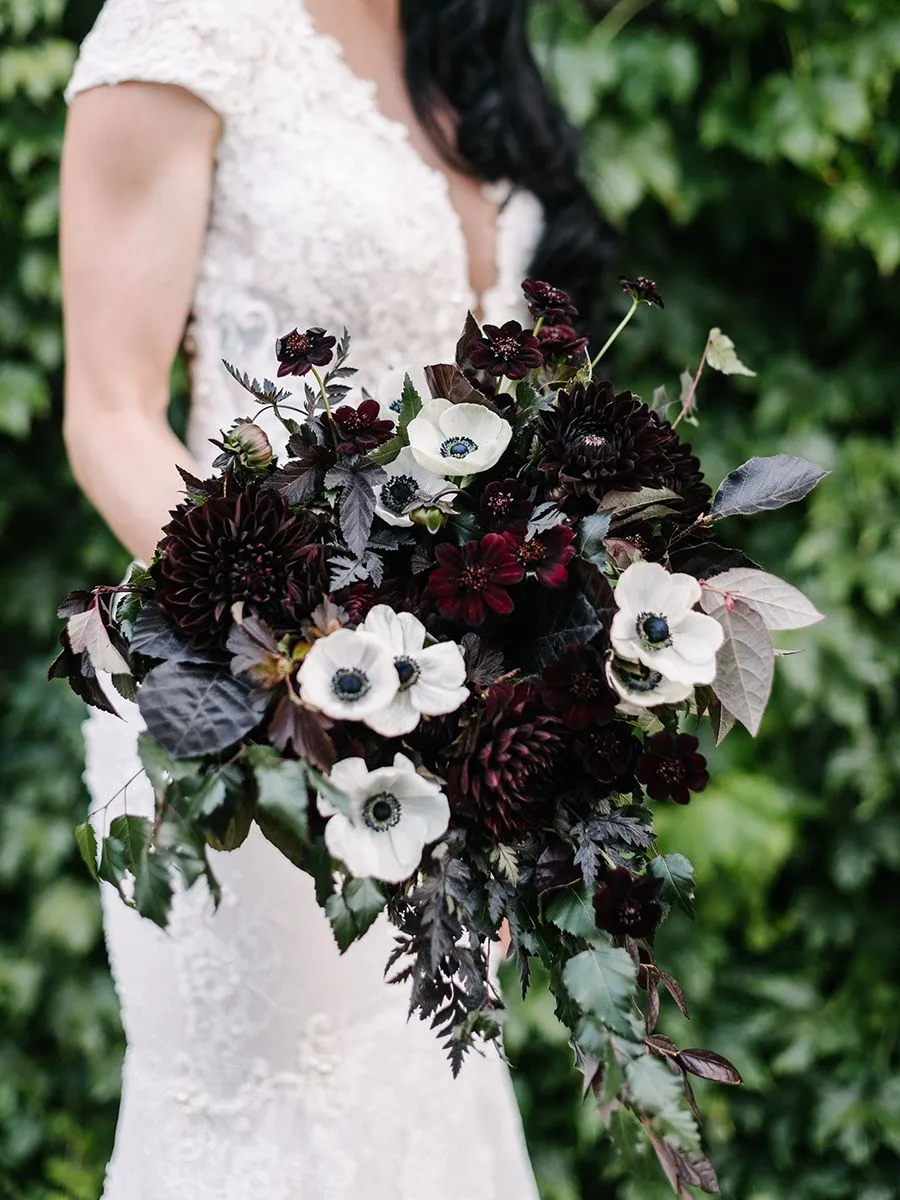
While black flowers may not be the first choice for a romantic gesture, their presence in your garden can serve as a reminder of the complexities of love and the many emotions it can elicit. Embrace the romantic meanings of these dark blooms and let them inspire both passion and reflection in your outdoor sanctuary.
Using Black Flowers and Plants in Your Garden Design
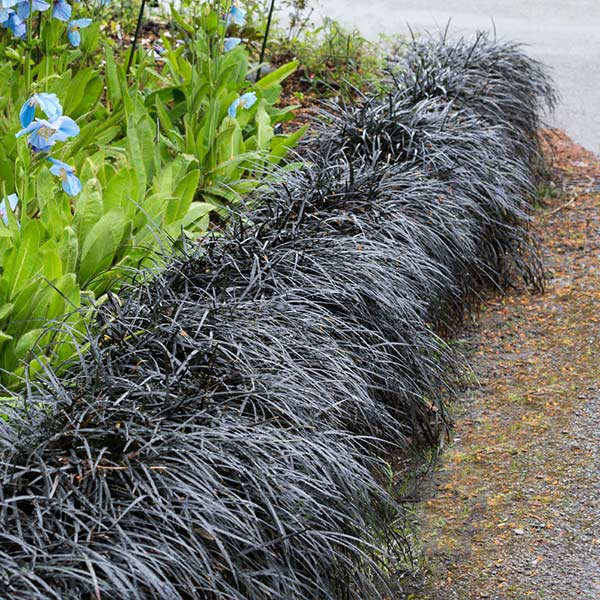
Incorporating black flowers and plants into your flower beds can create stunning visual effects and enhance the overall aesthetic of your outdoor space. From combining colors to creating focal points and accents, these dark beauties can add depth and interest to your garden.
Let us now explore the many ways you can use black flowers and plants in your garden design.
Combining Colors
To create a visually appealing and dynamic garden, consider combining black flowers and plants with other colors. Pairing dark hues with light colors such as:
lime green
silver
white
cream
pastels like pale yellow, lavender, or soft pink
Can create a captivating contrast that draws the eye and delights the senses.
Experiment with different color combinations to find the perfect balance for your garden. Whether you’re contrasting the deep maroon of the Queen of Night Tulip with bright yellow daffodils or blending the dark foliage of the Black Lace Elderberry with soft pink flowers, the possibilities are endless.
Focal Points and Accents
Using black flowers and plants as focal points or accents in your garden can draw attention to specific areas, adding depth and interest to your overall design. Strategically placing these dark plants can create a visual hierarchy, guiding the eye through the garden and highlighting key features or areas of interest.
Whether you’re creating a focal point with a cluster of dark flowers or using a single black plant as an accent within a colorful bed, the addition of black flowers and plants can elevate your garden design to new heights. Embrace their dramatic presence and let them transform your outdoor space into a captivating haven.
Summary
Incorporating black flowers and plants into your garden can create an enchanting atmosphere filled with mystery, power, and elegance.
By understanding their unique care requirements, symbolism, and design potential, you can create a captivating outdoor space that showcases the beauty and intrigue of these dark blooms. Embrace the allure of black flowers and plants and let them transform your garden into a mesmerizing haven.
Frequently Asked Questions
Are there any naturally black flowers?
Yes! Though it is not a natural shade, the Petunia Black Velvet was created in 2010 and has become popular among gardeners due to its unique and striking dark color.
The Blackest Flower will surely bring a bit of drama to any garden.
What flower represents black?
Black is a hue associated with death and mourning, so it stands to reason that the Periwinkle flower is viewed as the flower which represents black. Periwinkle symbolizes remembrance, respect, and mourning for those who have been lost.
This somber flower stands as a testament to the struggles of black communities and serves as a reminder of their resilience in the face of adversity.
What flower grows in the dark?
Bat Flower. Unfurl your dark and mysterious side with the exotic bat flower; this rare, shadowy bloom is guaranteed to add a touch of mystery to your garden.
With its curious moth-like appearance and strong, floral scent, this intriguing plant is certain to captivate.
What are some examples of black flowers and plants?
Lost in a sea of color, stand out with these unique and bold black flowers and plants! From Queen of Night Tulip to Black Mondo Grass, make a statement with these beautiful yet dramatic blooms.
What do black flowers symbolize?
For many, black flowers evoke a range of powerful emotions and connotations, from mystery to mourning, power to elegance, and a deeper connection with loved ones.
They can be a beautiful way to commemorate something special or say goodbye.

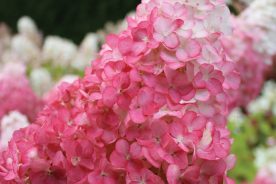
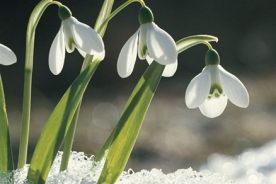
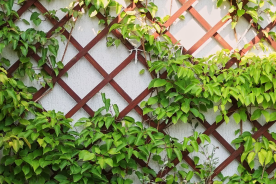

No Comments